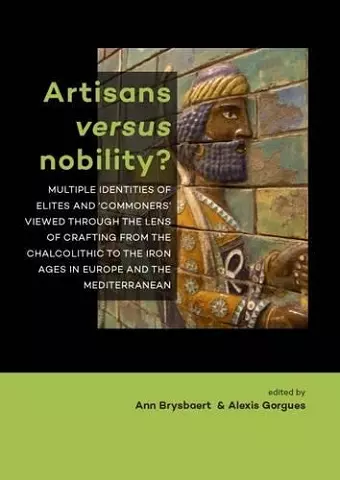Artisans versus nobility?
Multiple identities of elites and ‘commoners’ viewed through the lens of crafting from the Chalcolithic to the Iron Ages in Europe and the Mediterranean
Ann Brysbaert editor Alexis Gorgues editor
Format:Paperback
Publisher:Sidestone Press
Published:20th Mar '17
Currently unavailable, and unfortunately no date known when it will be back

In prehistoric Europe hierarchic societies arose and developed technological systems and processes in the production of objects related to everyday use, on the one hand, and items of religious and symbolic character emulating prestige and luxury, on the other, while both types of objects may not always be clearly distinguishable.
This volume deals with questions of how artisans and other social groups, involved in these productive processes and social practices, reacted to and interacted with the demands connected with elites identities formation, affirmation reconfirmation practices. Innovations and the development of new technologies designed to satisfy the needs of ostentatious behaviour and achieving prestige are key issues of this volume. For example, how can we identify the consequences of such processes, how can we define the role(s) that the craftspeople played in such contexts, and are these always as clear-cut as usually portrayed? The book’s common aim is to investigate the economic, socio-political, as well as the technological contexts and backgrounds of the make-up of material culture and technologies in these periods. We examine which role(s) artisans may have played in status and identity formation processes, in rituals and in symbolic performances, in other words, in each aspect of life and death of selected Chalcolithic, Bronze and Iron Age populations in Europe. Many aspects of the social interaction patterns between the different groups of people in those periods have not been adequately discussed and investigated, especially the artisans’ important role(s). This volume aims to redress these imbalances by investigating how social groups interacted with each other, and how we may recognize such interactions in the material remains.
ISBN: 9789088903960
Dimensions: unknown
Weight: unknown
222 pages